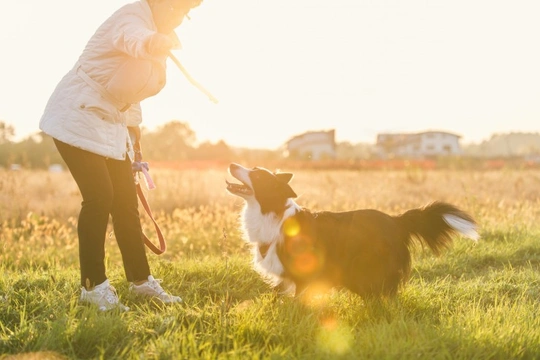
What dog owners need to know about the Protection of Livestock Act (1953)
A surprisingly large number of dog owners are not even aware of the remit of the Protection of Livestock Act (1953)-but this law is in fact hugely relevant to dog owners, and something that all dog owners should be aware of, particularly those living in rural areas or holidaying in the country with their dogs.
The Protection of Livestock Act is so important for dog owners for one reason-because this is the Act that gives permission to a farmer, landowner or other party to shoot or have your dog destroyed if they bother their livestock.
Sadly, several dogs a year are legally killed under the remit of this law, but such deaths are entirely preventable, by ensuring that you follow the countryside code and keep your dog properly under control when out and about.
In this article, we will look at the Protection of Livestock Act in more detail, including the remit of the law, how it is applied, and what it means for you as a dog owner. Read on to learn more.
The Protection of Livestock Act 1953
The Protection of Livestock Act came into force during the 1950’s, to provide a legal recourse for farmers and other livestock owners to protect their livestock from threats from other people’s dogs. This is relevant because an out of control dog of any breed or size can cause serious damage to farm animals, which of course is both costly for the farmer and distressing for all involved.
One problem is of course the issue that can arise if your dog outright attacks another animal-but there is also a danger from a dog simply worrying livestock, such as by chasing them or running at them. Upsetting or frightening livestock in this way can lead to injuries and harm caused when the livestock try to get away, and such stress can even cause miscarriage in farmyard animals.
In order to allow farmers some recourse to stop this-and of course, to act as a deterrent to dog owners-the Protection of Livestock Act came into force, to set out the criteria for what a farmer or livestock owner can do if a dog worries their stock.
What counts as livestock?
A wide range of different species of animals are classed as livestock-the most obvious of these are things like cows, sheep and pigs, but the Act also covers things like chickens, horses, geese and goats.
The moniker of “livestock” does not apply to domestic pets, however, such as cats, nor wild game birds, such as pheasant and grouse.
What does the law mean for livestock owners?
The main remit of the Protection of Livestock Act gives farmers the power to do whatever is necessary within reason to protect their stock from the potential risks and losses that can be caused by an out of control dog.
The provisions of the Act apply to any person who is walking or in control of a dog, whether that person is the dog’s owner or not, and the Act refers specifically to dogs that are “worrying” livestock.” In this context, “worrying” livestock is determined as any of the following:
- Attacking livestock, whether or not serious or significant injury is sustained.
- Chasing livestock, which may cause injury or miscarriage in the stock in question.
- Being at large (not on a lead or proper control) within a field in which livestock is present.
- However, the Act does not apply to police dogs, assistance dogs, trained sheep dogs, packs of working hounds, or working gun dogs.
The law also does not apply if the livestock in question have got loose and entered an area not owned or controlled by their owner; ergo, this protects dogs if livestock should happen to wander into the dog’s territory.
What does the law mean for dog owners?
The Protection of Livestock Act as it applies to dog owners means that if the circumstances above occur, the farmer or livestock owner is within their legal rights to shoot your dog if they choose to, in order to protect their livestock.
While many farmers will be unwilling to shoot someone’s pet even in this situation, it is important to remember that many farmers will do so, and that they are ultimately protecting their stock, and not deliberately trying to do something nasty to deprive your pet of their life.
If your dog is shot by a farmer under these circumstances, the fault lies with you and not them-and there are also other penalties that can apply to you as well as the loss of your dog. If you are found guilty of having an out of control dog that worried livestock, you may also be subjected to summary conviction, and fined as well as of course having to make right the cost of any damage or injuries to the livestock.
Ultimately, following the countryside code and keeping your dog under control when in new places or around livestock can prevent such problems-and is really important!



